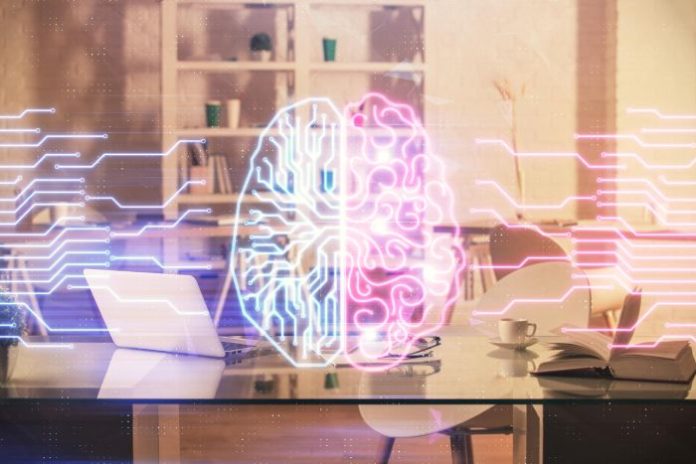Sometimes, the time between therapy sessions can seem like a big, quiet gap. You leave your therapist’s office feeling grounded and ready to face the world, but then a tough day hits on Tuesday afternoon, and your next appointment isn’t until Friday. It’s normal to feel alone in those times and wonder how to keep the progress you’ve made until you can talk about it again.
What if you had a helpful, smart friend in your pocket who could help you get through those in-between times? This is where AI mental health tools can help in a gentle way. They are not here to take the place of your therapist; they are here to help you practice the skills you are building and give you daily support. Think of it as having a tool just for your emotional health that you can use any time of day or night.
Key Takeaways
- AI mental health tools provide support between therapy sessions by offering 24/7 emotional assistance.
- These tools, like chatbots and journaling apps, help reinforce skills learned in therapy.
- They encourage self-reflection, mindfulness exercises, and track mood to improve therapy outcomes.
- Users should communicate with their therapists about using AI tools and set healthy limits on their use.
- AI mental health tools are safe when used responsibly, maintaining data privacy and not replacing human therapists.
Table of Contents
Why Support Between Therapy Sessions Matters
Therapy works well, but we don’t just have 50 minutes a week to talk about our problems. Emotions change, triggers show up out of nowhere, and old ways of thinking can come back when we least expect them. Therapy’s real work often happens in our daily lives, like how we use coping skills when things get tough at work or how we show ourselves kindness after a tough conversation.
It’s easy to feel like you don’t remember what you learned in therapy if you don’t get regular help. Sometimes, this can make you feel stuck or even make your symptoms come back. Daily check-ins and small practices can help you keep up the momentum and apply what you’ve learned in therapy to your life, which can make the journey feel less lonely.
What Are AI Mental Health Tools?
You might be thinking of a cold, robotic voice, but the emotional well-being technology of today is nothing like that. AI mental health tools are digital friends that help with mental health. They can be chatbots, smart journaling apps, or mood trackers. For many, these tools serve as a personalized AI therapist bot, offering immediate, guided support.
They use natural language processing to figure out how you feel and give you techniques that are based on research. For instance, an app might ask you to do a “stress check-in” when it sees you using anxious language, or a journaling assistant might ask you questions to help you think about your day. These tools are like a Swiss Army knife for your mind. They have a lot of different exercises, from mindfulness and breathing exercises to Cognitive Behavioral Therapy (CBT) techniques, all of which are designed to help you when you need it most.
5 Ways AI Mental Health Tools Help Between Therapy Sessions
The goal of these tools is to be useful and easy to use. Here’s how they can help you on your journey to better mental health.
Providing 24/7 emotional support
Business hours don’t apply to life. It can feel very lonely to have a panic attack at 2 a.m. or a wave of sadness on a Sunday night. You can always talk to an AI mental health assistant without worrying about being judged. You can talk about your feelings, let out your anger, or just talk about what’s bothering you. This quick, non-judgmental response can be a great way to calm down strong feelings right away. It will help you feel heard and grounded until you can talk to your therapist about the problem.
Encouraging self-reflection and journaling
Many of us know that keeping a journal is good for us, but it can be hard to find the time and figure out what to write. AI journaling assistants fix this by giving you thoughtful, guided prompts. They could say, “What made you happy today?” or “What is the most important thing on your mind right now?” This guided method makes it easier to think about yourself and find patterns and truths that you can talk about with your therapist in more detail later.
Offering grounding or mindfulness exercises
When you’re feeling overwhelmed, your therapist’s advice to “just breathe” might seem like a long way off. AI tools can help you do a 60-second breathing exercise, a progressive muscle relaxation, or a quick mindfulness meditation right away. These exercises, which are based on evidence, are meant to calm your nervous system and bring you back to the present moment. They are like a toolkit for managing stress and anxiety on the go.
Tracking mood and behavioral patterns
Our memories are subjective, especially when it comes to how we feel. An AI tool can help you and your therapist see the bigger picture by keeping track of your feelings, sleep, and activities regularly. It can show you patterns you might have missed, like how your anxiety tends to get worse after you drink too much coffee or skip your morning walk. This information-based insight is very helpful for tailoring your treatment plan and figuring out what makes you feel better and what makes you feel worse.
Reinforcing the therapist’s recommendations
Your therapist probably gives you “homework,” which is a list of skills to work on between sessions. You can use an AI tool to help you stay on track. You can say, “My therapist wants me to work on my negative thoughts,” and the assistant will give you daily tasks to do that. This constant reinforcement helps turn abstract ideas from therapy into real-life habits, which helps you make progress.
How to Integrate AI Tools Into Your Therapy Sessions Journey
Using these tools wisely is the best way to get the most out of them.
- Talk to Your Therapist: The most important thing is to be honest with your therapist about using an AI tool. They can help you figure out how to use it and may even have suggestions. It becomes a tool that you all share.
- Set Healthy Limits: An AI is an addition, not a replacement. Set time limits on your interactions to make sure they help your life and don’t become an obsession. Keep in mind that it’s a way to take care of yourself, not something that makes you more anxious.
- Don’t use it instead of something else; use it as a supplement. The magic of therapy comes from the fact that your therapist is a real person with real experience. Use the AI for everyday tasks and the therapist for deep, life-changing work.
Are AI Mental Health Tools Safe?
This is a very important question. It’s important to remember that AI doesn’t help with diagnosis or crisis care when it comes to psychological safety. If you say you want to hurt yourself or someone else, good apps will always send you to professionals or emergency services.
When it comes to data privacy, your privacy is the most important thing. Always use apps that you trust, have been around for a while, and have clear privacy policies. Look for tools that are clear about not selling your personal data and use encryption. If you do your research, your journey with AI for self-care will be safe and helpful.
Taking care of your mental health is a brave thing to do, and you don’t have to do it alone in the time between appointments. AI mental health tools are here to help you feel connected and cared for every day of the week by offering a steady, caring, and always-available hand.
They give you the tools you need to take charge of your health and make the things you learn in therapy real. To see how this works between therapy sessions in practice, you can explore a tool like the AI therapist bot from Soula. Keep in mind that this is about making you stronger and more resilient, with the help of both cutting-edge emotional well-being technology and real human connection.











